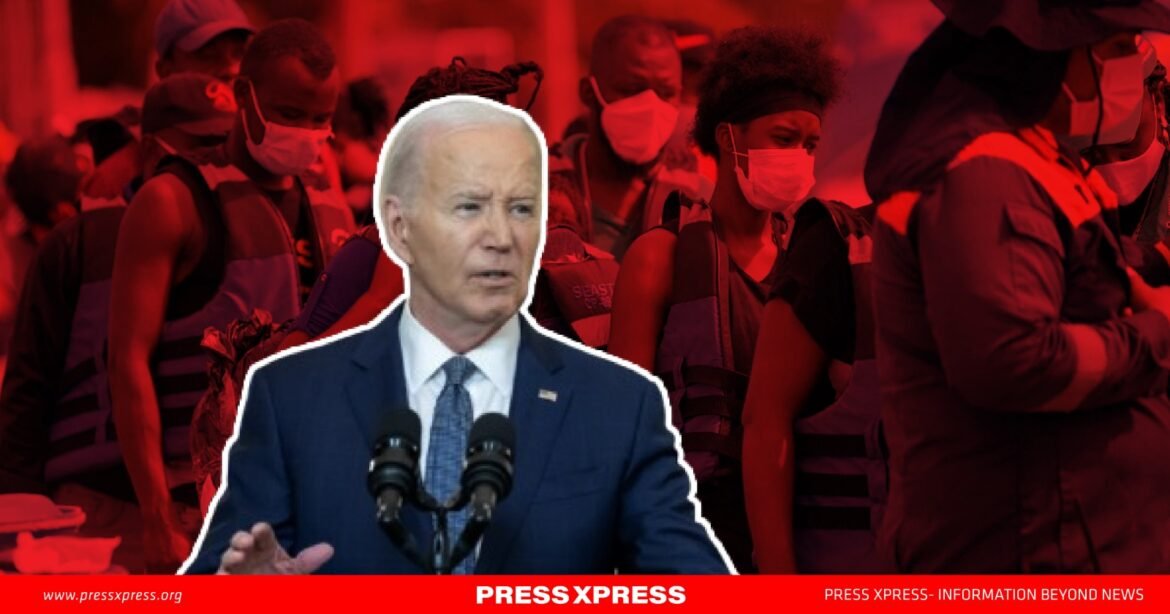The Biden administration has announced it will not renew the temporary humanitarian parole program that has allowed over 530,000 migrants from Cuba, Haiti, Nicaragua, and Venezuela to enter the United States legally since October 2022. This program, designed to offer legal pathways for those fleeing crises in their home countries, is set to expire soon. With the decision not to renew the program, thousands of migrants will face uncertainty regarding their status in the U.S. While some may find alternative legal avenues to stay, others could face deportation or removal proceedings. The decision marks a significant policy shift, as immigration continues to be a hotly debated issue ahead of the November 5 election.
This parole program, initially implemented to manage the surge of migrants and reduce illegal crossings at the U.S.-Mexico border, was met with both praise and criticism. Now that it is ending, questions are being raised about the future of migrants from these countries and the broader implications for U.S. immigration policy. Understanding the impact of this decision requires looking at the options available to migrants, the political context, and the broader immigration landscape.
A Temporary Lifeline
The parole program introduced by the Biden administration aimed to manage unprecedented levels of migration from crisis-stricken nations in Latin America and the Caribbean. It provided a legal pathway for migrants who had U.S. sponsors, allowing them to enter the country for humanitarian reasons or for reasons deemed beneficial to the public. The program also sought to reduce illegal crossings at the U.S.-Mexico border, which had reached record levels under Biden’s presidency.
Since its inception, over half a million migrants entered the U.S. under the program, but it was always intended to be temporary. Migrants granted entry received two-year permissions, many of which will start expiring in the coming weeks. The program’s discontinuation has sparked concern for those who may not have other legal pathways to remain in the country, while others could still qualify for separate programs or protections. The ending of this temporary relief marks a turning point in how the U.S. manages the influx of migrants from these regions.
Who Can Stay?
Despite the end of the parole program, many of the affected migrants may still have alternative legal avenues to remain in the United States. For instance, Cubans are eligible for permanent residency under the 1966 Cuban Adjustment Act, which allows them to apply for a green card after being in the U.S. for one year. Similarly, Haitians and Venezuelans can benefit from Temporary Protected Status (TPS), which grants them deportation relief and work permits.
For other migrants, however, the expiration of their parole status could lead to more precarious situations. Those who fail to secure a legal right to stay may face removal proceedings or be forced to leave the country. The Department of Homeland Security has already indicated that migrants without valid permission to remain will need to depart or risk deportation. This distinction between those with alternative protections and those without will be a key factor in determining how the end of the parole program affects individual migrants.
Immigration and the 2024 Election
The decision to end the parole program comes at a politically charged time. With the U.S. presidential election approaching, immigration is once again a focal point of debate. The parole program was originally introduced to address growing concerns about illegal immigration, but it has also been criticized by Republicans as too lenient. Former President Donald Trump, who will be running against Vice President Kamala Harris in the 2024 election, has been vocal in his opposition to the program, arguing that it has contributed to lax immigration policies.
For the Biden administration, managing the fine balance between offering humanitarian support and maintaining border security has proven challenging. The end of the parole program may be seen as an effort to address Republican criticisms while still providing legal pathways for some migrants. However, with immigration remaining one of the top issues for voters, the political landscape surrounding the issue is likely to continue evolving as the election draws nearer.
The Broader Impact on U.S. Immigration Policy
The termination of the parole program for Cuban, Haitian, Nicaraguan, and Venezuelan migrants raises broader questions about the future of U.S. immigration policy. While the program was designed as a temporary measure, it provided an important avenue for migrants fleeing political and economic instability in their home countries. The decision to end it reflects a larger trend of scaling back certain humanitarian protections in favor of stricter enforcement measures.
However, other parole programs for Ukrainians and Afghans have been extended, signaling that the U.S. government is making selective decisions based on geopolitical and humanitarian considerations. The question now is whether the U.S. will continue to provide legal avenues for migrants from regions like Latin America and the Caribbean or shift further toward more restrictive policies.
As the situation develops, the end of this parole program will likely shape future discussions on how the U.S. balances its humanitarian obligations with border security and immigration control. For now, many migrants face uncertainty, and the U.S. government’s approach to these challenges will play a critical role in shaping the country’s immigration landscape in the years to come.


